Racial Restrictive Covenants Project: April 2025 Updates
Upcoming Events
On Saturday, May 3rd, the Racial Restrictive Covenants Project will join the Northwest African American Museum (2300 S Massachusetts St, Seattle, WA 98144) to recognize the 77th Anniversary of the landmark Shelley v. Kraemer US Supreme Court Decision.
At 3 PM the Racial Restrictive Covenants Project will present an overview of Seattle’s racially restrictive past, then NWAAM will then provide a workshop to help prospective homebuyers apply for down payment assistance through the Covenant Homeownership Account.
This event is open to the public, and admission to NWAAM will be free to all on May 3rd.
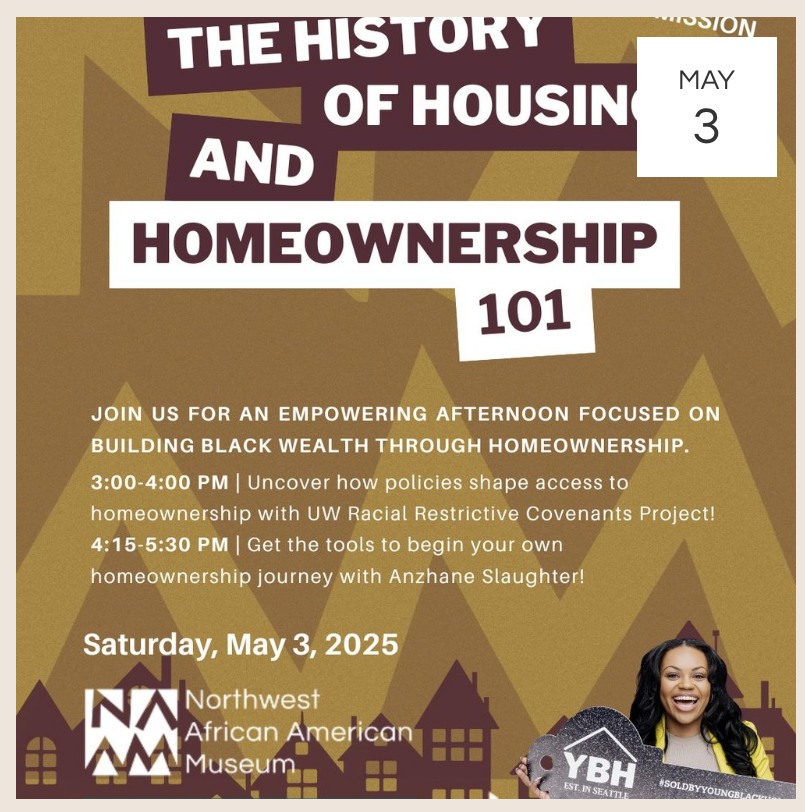
What was the Shelley V. Kraemer Decision?
Racial restrictive covenants were a tool of segregation across the United States for much of the 20th century, and until 1948 this form of housing discrimination had the legal backing of the courts.
This changed when the Shelleys, an African American couple, moved into a St. Louis home that had been restricted three decades earlier in the 1910s. The Shelleys’ neighbors, the Kraemers, took legal action to uphold the covenant and evict the couple, but with the support of the St.Louis NAACP the Shelleys appealed the local court decision, and the case was brought to Washington DC.
The US Supreme Court ruled that racial restrictive covenants remained legal private agreements but that state courts could no longer enforce them because the 14th Amendment equal protection clause prevented states from engaging in racial discrimination. This decision, however, did not void real estate covenants and realtors continued to impose new restrictions for the next twenty years.
Because efforts to segregate Seattle were primarily led by the real estate industry, wealthy developers, and social consensus of racial discrimination from white homeowners, this ruling did very little to affect the climate of discrimination which historically confined Black residents to the Central District. It wasn't until Congress passed the Fair Housing Act in 1968 that we see the seeds of Seattle’s desegregation.
Updated Restriction Maps for Pierce, Thurston, and Clark Counties.
Using refined OCR searching techniques, our team identified 1,000 additional restricted parcels in Pierce County and additional restrictions in Thurston and Clark counties. To explore these newly mapped restrictions, follow the links below.
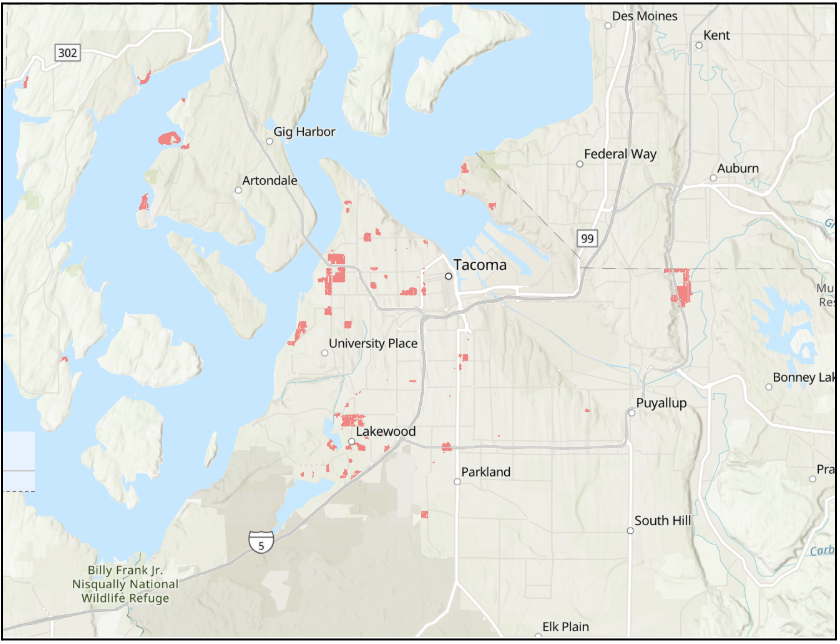
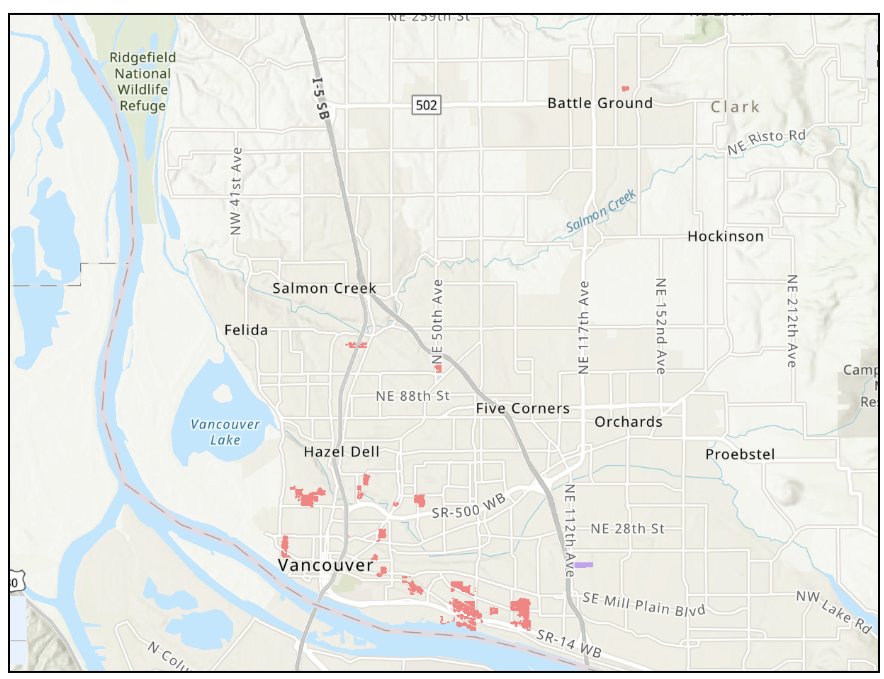
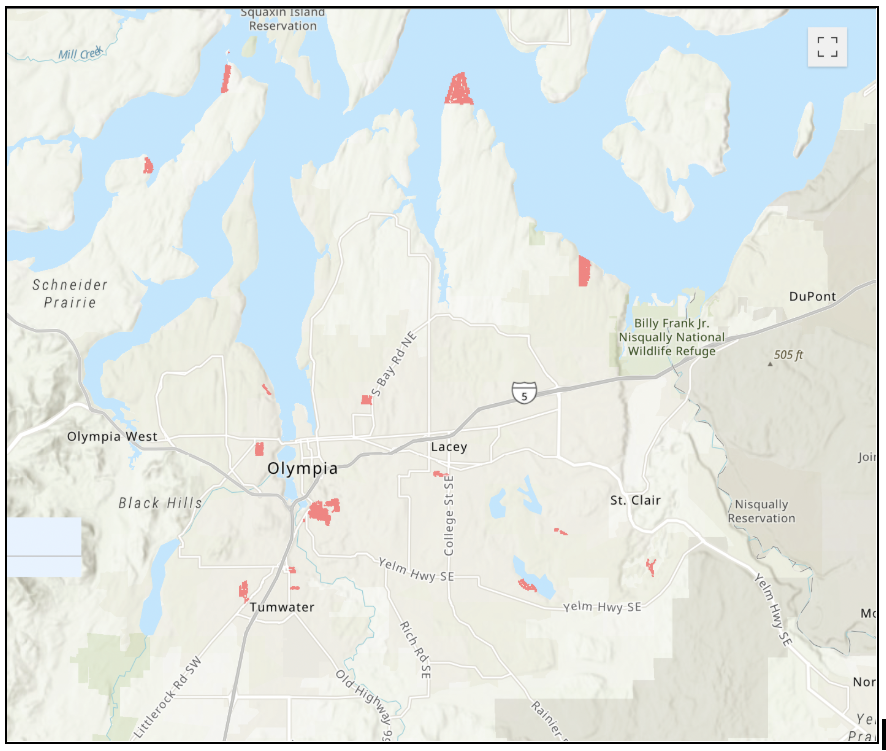
Magnolia Restrictive Covenant Modification
On Tuesday, April 15th the Racial Restrictive Covenants Project joined the Magnolia Community Council for a presentation and covenant modification training. Over 1,000 properties in the Magnolia neighborhood were restricted to white residents only by various developers between the 1920s and 1950s. At our meeting, neighborhood residents learned how to file modification forms to strike the racist provisions from their property records.
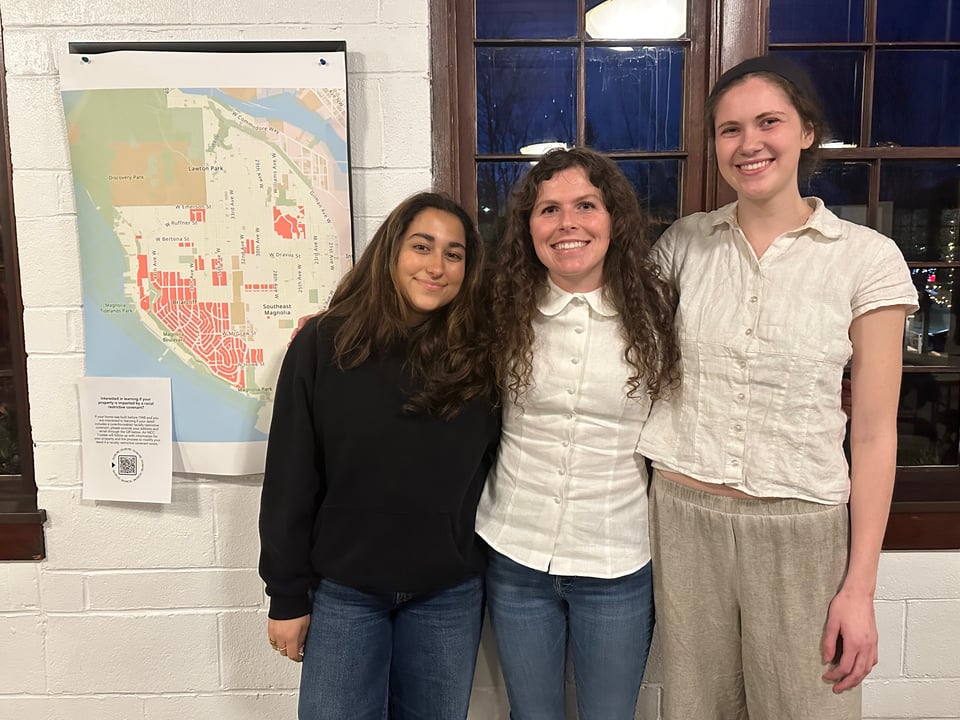
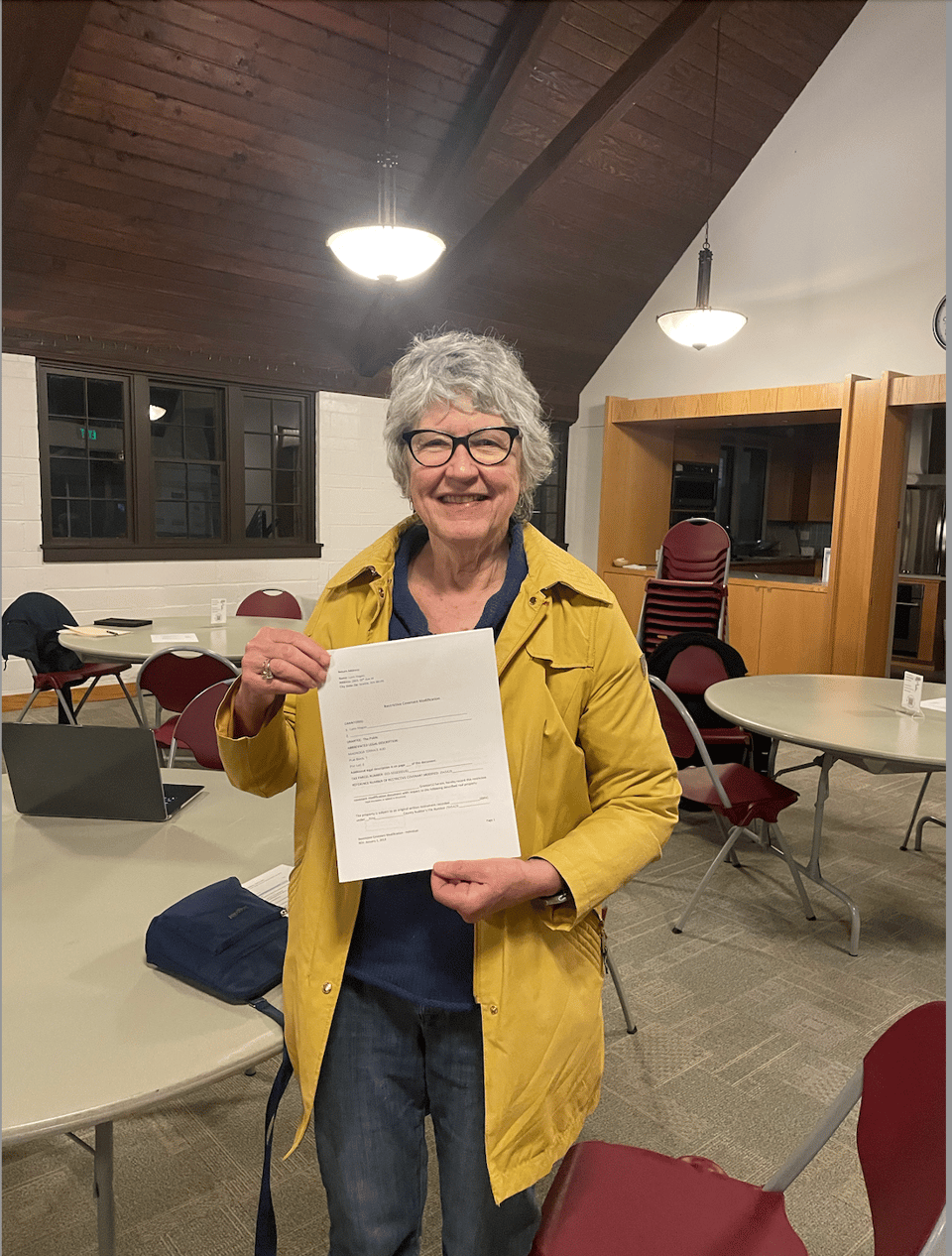
To check if your property may have been restricted by a racial covenant, use this map of King County:
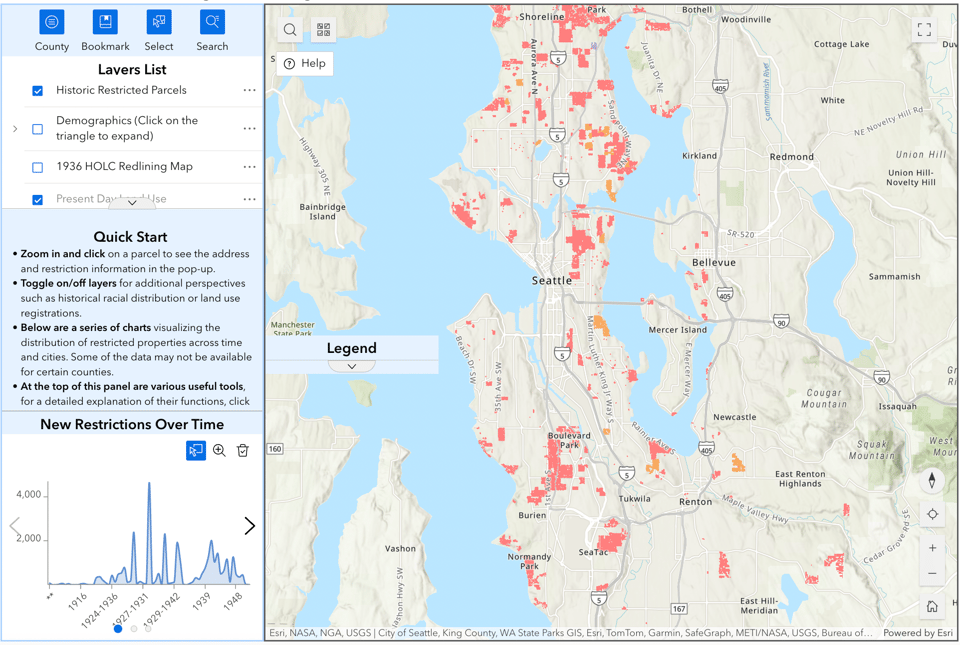
To modify a restriction, use the following covenant modification form:
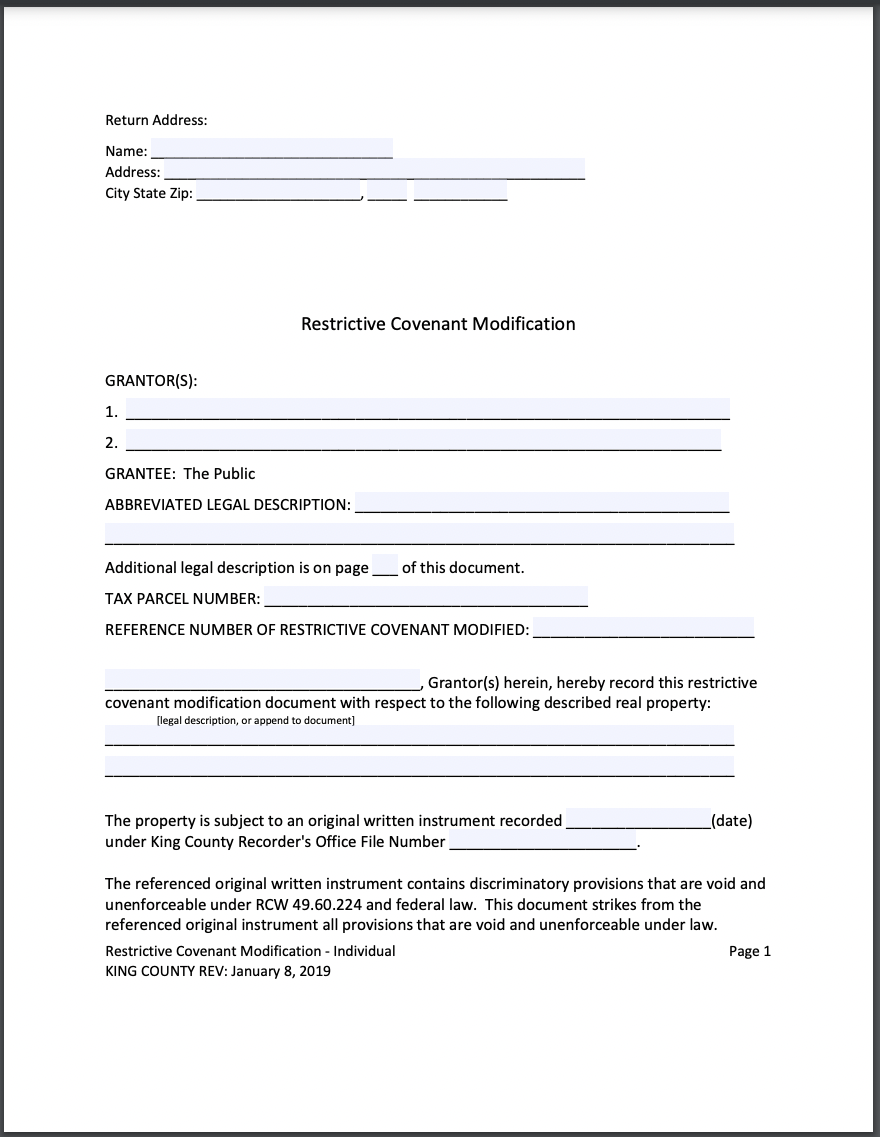
Outreach Deadline
The Racial Restrictive Covenants Project provides community outreach presentations, covenant modification training, and volunteer opportunities to involve the local community in research and education about Washington State’s explicitly racist and restrictive past, and the ongoing impact of racial exclusion in housing.
State funding for the project will terminate at the end of June 2025, and these outreach and education efforts will be greatly reduced. To request a presentation or training before the end of the project, reach out to wacovenants@gmail.com with your request and we will do our best to schedule before July.